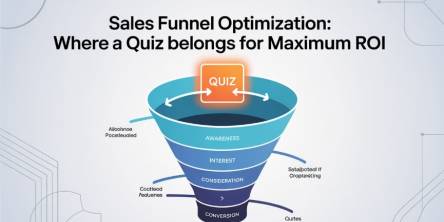SAP Software Importance for Optimizing Business Performance

The digital dimension has become the force behind business development, giving the opportunity for every start-up to grow into a global enterprise. However, such accessibility also creates a highly competitive environment, where only the strongest win the attention of the customers.
Every company structure looks like a busy beehive, with every department being responsible for a particular area. However, with the gradual extension of business, it becomes difficult to monitor and control all the interactions, which can lead to disruptions in work. Therefore, there is a need for specific solutions that will automate and optimize the work of every separate department, while establishing transparent cooperation between all of them.
Such a puzzling task was escalated to the IT sphere, which created an SAP ERP system. SAP ERP is the tool that streamlines and speeds up all the processes within the company, and thus, enhances business performance. Let’s study the benefits of its implementation.
What is SAP ERP?
SAP ERP is an efficient ecosystem of software solutions that aim to enhance business performance by automating all interactions within and providing a clear view of its performance. SAP ERP is a system of various modules, each one dedicated to a specific area of the business functioning.
What are the Types of SAP solutions?
Overall there are 25 modules, however, there is no need to implement all of them. SAP ERP offers a high level of flexibility for its clients, as it is possible to implement only one or two modules, covering only specific areas, or introduce SAP solutions into the whole company system, to get the whole view of the structure and have more control over everything. Among the most common modules are:
- FICO — Finance & Controlling
- PP – Production Planning
- HCM – Human Capital Management
- TM — Transport Management,
- CRM – Customer Relationship Management
- YL — Yard Logistics
- EWM — Extended Warehouse Management, etc.
Let’s have a quick look at their functioning:
1) SAP Extended Warehouse Management
SAP EWM is a highly functional module that provides automated processing of all the goods movements within the warehouse. Besides, the system helps to manage all the stocks and keep track of every single piece of inventory in all the storage locations. SAP for Warehouse Management can also benefit the quality of the stock, as it helps to track down faulty goods and withdraw them from the supply chain.
2) SAP Finance and Controlling
SAP FICO is an effective way to automate all financial and economic interactions (including debt payable and debt receivable), generate financial statements, store the data about all the transactions, produce financial reports and analyses, etc.
3) SAP Transportation Management
SAP TM is an efficiently organized transportation cycle that provides a high-quality connection between businesses and clients, as it is responsible for the timely delivery of orders to the end-users. By executing SAP TM ERP integration with SAP WM, the transportation planning results will be automatically sent to SAP EWM, creating the transportation units, which will significantly reduce the time of the process.
4) SAP Customer Relationship Management
SAP CRM takes the communication between the marketers and the target audience to a new level, helping to deliver target messages across various channels, plan and execute the campaigns, cultivate leads, and enhance ROI.
5) SAP Human Capital Management
SAP HCM is an asset for employees, as it provides a self-service portal where they can request any information related to their employment within the company.
Every module of SAP offers a multitude of benefits for its users and helps to improve the overall work of the department. What’s even more important, all the modules can work both as an independent application or as a part of the whole system of modules, providing an extensive level of control and regulation into the company.
How to Introduce SAP Solutions Into the Business Structure?
The choice of SAP solutions is based on the needs of the company. Before reaching the vendors, it is important to research the company’s matters and define the areas that create impediments on the way to development. The next step is the choice of the company-integrator that possesses a great deal of knowledge and experience.
For instance, if you are the owner of a warehouse chain, in scattered locations, getting the reports may take up to 15 hours, which significantly slows down the whole process, and doesn’t let you come up with timely solutions. If you contact LeverX, a time-proven SAP Integrator, they will help you to integrate the SAP Extended Warehouse Management and as a result, you will have all the interactions within the warehouse streamlined, and reports generated at the requested time, not to mention other perks.
Similar Articles
We live in the age of cloud computing. That's plain to see. However, what may escape many are the operational and financial challenges of managing multiple independent clusters.
Times have changed and how! Take modern technology and the fast-paced digital economy, it is driving. Given the market conditions, any company's infrastructure has become more than just a technical detail.
It has been for everyone to see that the modern digital economy is distinguished by high volume, real-time financial transactions.
Business success has become reliant on efficiency and agility of the underlying technology infrastructure. Clearly, companies now depend on cloud computing to provide seamless services while managing exponential data growth.
Hospitals operate in environments where availability and patient safety are paramount at all times. As medical supply chains expand and regulatory oversight becomes more demanding, manual tracking methods introduce delays and risk.
Every sales funnel has one core goal: turn attention into revenue as efficiently as possible. Yet many funnels leak value at critical stages—visitors bounce, leads go cold, and sales teams chase prospects who were never a good fit.
Decentralized Finance (DeFi) has transformed how users earn passive income through blockchain-based financial systems. Among its most popular use cases,
Staying organized can feel like a full-time job. Between meetings, deadlines, and personal commitments, it’s easy to get overwhelmed.
Choosing the right GIS mapping software depends on what you need to accomplish. Some platforms cater to developers who want to build custom applications from scratch.









